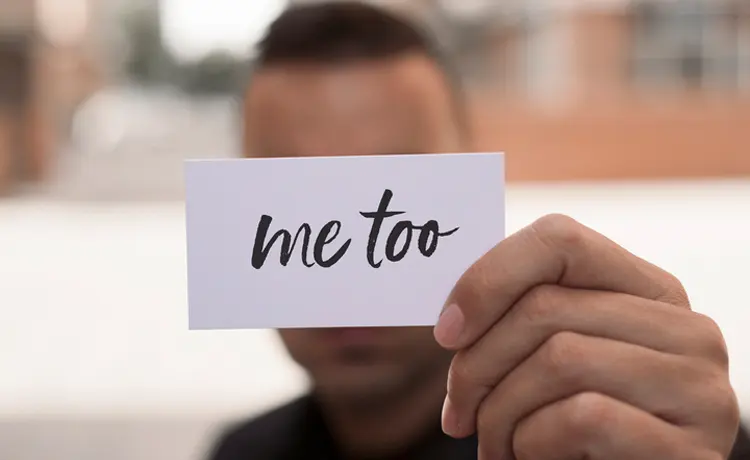Some people believe that sexual assault happens only to women. However, at least one in six men have been sexually abused or assaulted, whether in childhood or as adults.
Debunking the Myths
Myth: Men can't be sexually assaulted.
Fact: Anyone can be a victim of sexual assault. In fact, roughly 10% of rape victims are male.Myth: Male sexual assault happens only between gay men.
Fact: Sexual assault is not about sexual desire but about power and control. Perpetrators can be any gender, sexual orientation or age, and they can have any relationship to the victim. Perpetrators may use physical force or psychological and emotional coercion.When the perpetrator of a sexual assault is a woman, some people do not take the assault seriously; men may feel unheard and unrecognized as victims.
Myth: If a man becomes sexually aroused during the assault, it means he wanted the contact or enjoyed it.
Fact: Physical arousal is not a sign of desire or sexual orientation. An erection is an involuntary physical response to stimulation. These normal responses to sexual touch can happen even in situations that are traumatic or painful.Myth: A real man would never let himself be sexually assaulted.
Fact: Sexual assault can and does happen to men, regardless of their gender, strength and physical appearance.Effects of Sexual Assault
Male victims may experience common reactions:- Guilt: "I should have fought off the perpetrator."
- Shame: "I don't feel like a real man now."
- Fear: "People will think I'm gay if I report it."
- Depression: "I am not worth anybody's help."
- Denial: "I don't want to talk or think about it."
- Anger: "I hate everyone."
- Sadness: "I feel so worthless and powerless."
- Self-blame: "It's my fault."
- Alcohol and drug abuse: "This will ease the pain."
- Anxiety
- Depression
- Post-traumatic stress disorder (PTSD)
- Sleeping problems
- Eating disorders
- Flashbacks
- Thoughts of suicide
- Self-harm
Sexual assault is greatly underreported - especially by male victims. Only about one in four report the crime. For many, myths about masculinity can make it hard to disclose to friends, family or the community. For example, victims may feel embarrassed and ashamed or fear being thought of as weak or "less of a man."
What To Do
If you have been sexually assaulted:- Tell someone. Talk to a Sexual Assault Response Coordinator (SARC), a Victim Advocate or a therapist. Your conversation will remain confidential and you will get access to services you need.
- Get help. You don't have to suffer in silence or go through this alone. There are many support services available to you, such as the DoD Safe Helpline and the Military Crisis Line. You can also connect with other survivors for support.
- Learn about your rights and your reporting options. Service members may make a restricted report or an unrestricted report of sexual assault.
- Report retaliation. If you think you have experienced or witnessed retaliation in any form following a report of sexual assault, report it.
